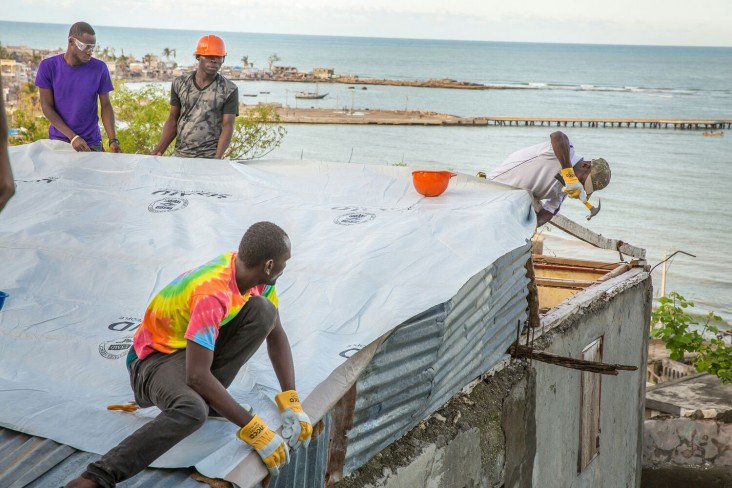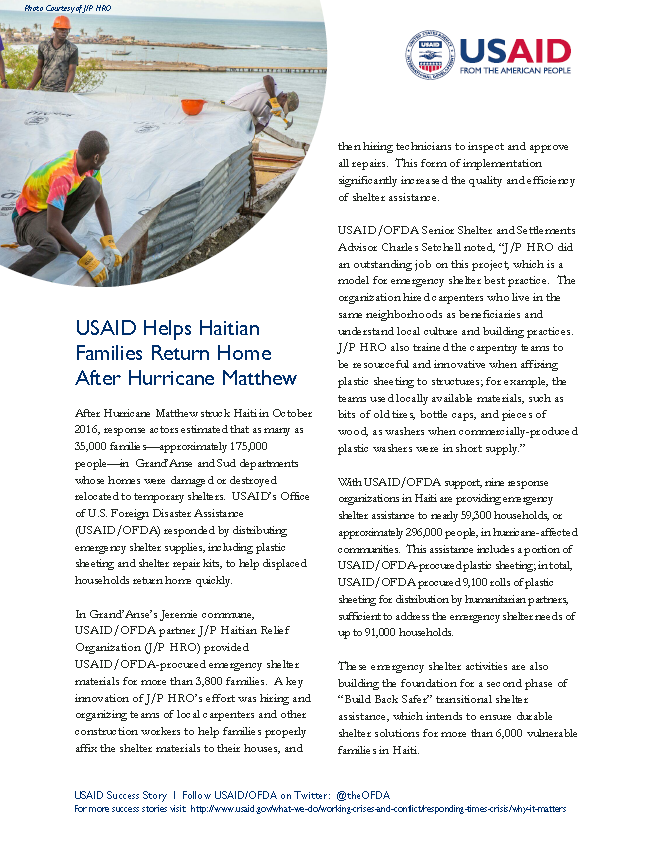
After Hurricane Matthew struck Haiti in October 2016, response actors estimated that as many as 35,000 families—approximately 175,000 people—in Grand’Anse and Sud departments whose homes were damaged or destroyed relocated to temporary shelters. USAID’s Office of U.S. Foreign Disaster Assistance (USAID/OFDA) responded by distributing emergency shelter supplies, including plastic sheeting and shelter repair kits, to help displaced households return home quickly.
In Grand’Anse’s Jeremie commune, USAID/OFDA partner J/P Haitian Relief Organization (J/P HRO) provided USAID/OFDA-procured emergency shelter materials for more than 3,800 families. A key innovation of J/P HRO’s effort was hiring and organizing teams of local carpenters and other construction workers to help families properly affix the shelter materials to their houses, and then hiring technicians to inspect and approve all repairs. This form of implementation significantly increased the quality and efficiency of shelter assistance.
USAID/OFDA Senior Shelter and Settlements Advisor Charles Setchell noted, “J/P HRO did an outstanding job on this project, which is a model for emergency shelter best practice. The organization hired carpenters who live in the same neighborhoods as beneficiaries and understand local culture and building practices. J/P HRO also trained the carpentry teams to be resourceful and innovative when affixing plastic sheeting to structures; for example, the teams used locally available materials, such as bits of old tires, bottle caps, and pieces of wood, as washers when commercially-produced plastic washers were in short supply.”
With USAID/OFDA support, nine response organizations in Haiti are providing emergency shelter assistance to nearly 59,300 households, or approximately 296,000 people, in hurricane-affected communities. This assistance includes a portion of USAID/OFDA-procured plastic sheeting; in total, USAID/OFDA procured 9,100 rolls of plastic sheeting for distribution by humanitarian partners, sufficient to address the emergency shelter needs of up to 91,000 households.
These emergency shelter activities are also building the foundation for a second phase of “Build Back Safer” transitional shelter assistance, which intends to ensure durable shelter solutions for more than 6,000 vulnerable families in Haiti.








Comment
Make a general inquiry or suggest an improvement.